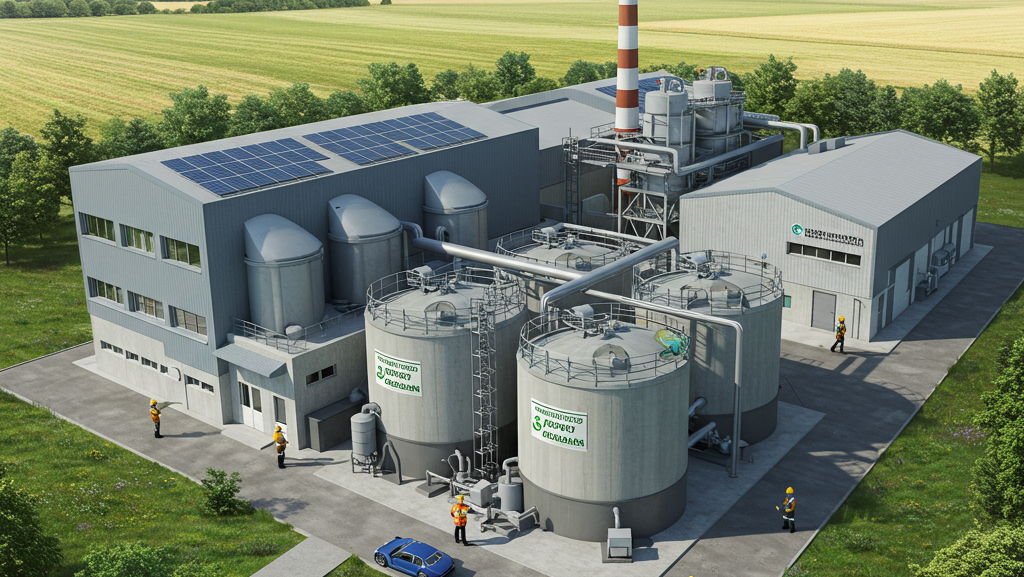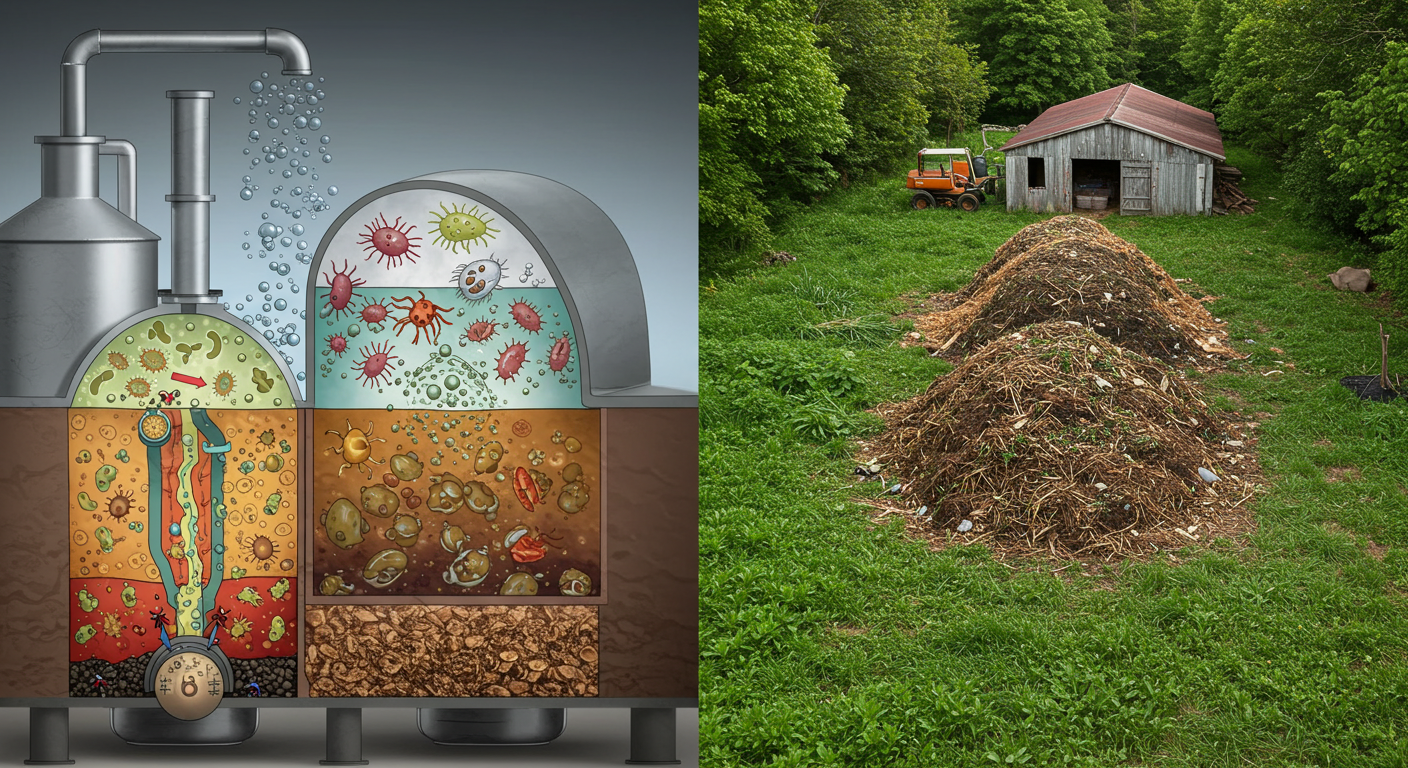Introduction
Deforestation has emerged as one of the most pressing environmental issues of our time, with far-reaching consequences for biodiversity, climate stability, and ecosystem health. The relentless clearing of forests for agriculture, urbanization, and logging not only leads to the loss of countless plant and animal species but also contributes significantly to greenhouse gas emissions. This loss of trees, which play a crucial role in absorbing carbon dioxide, exacerbates climate change, creating a feedback loop that intensifies the challenges faced by our planet.
In light of these alarming trends, innovative solutions are being sought to mitigate the adverse impacts of deforestation. One such initiative is spearheaded by Mupundu Energy, an organization committed to addressing both energy needs and environmental preservation. Mupundu Energy’s approach revolves around the bottling of biogas, a sustainable energy source derived from organic waste decomposition. By converting agricultural residues and other organic materials into biogas, the company not only provides clean energy but also minimizes the reliance on wood fuel, which is a significant driver of deforestation in many regions.
This biogas bottling process serves as a compelling alternative to conventional energy sources, effectively addressing the dual crisis of energy scarcity and environmental degradation. Through the utilization of biodegradable waste, Mupundu Energy creates a circular economy where the byproducts of one process serve as the input for another, thereby fostering sustainable practices. Adopted widely, this innovative energy solution has the potential to significantly reduce deforestation rates while promoting energy access for underserved communities. As we delve deeper into the methods utilized by Mupundu Energy, it becomes evident that such initiatives could pave the way for a more sustainable future in the face of an ongoing environmental crisis.
The Problem
Zambia faces a pressing challenge with its heavy reliance on traditional biomass fuels, notably charcoal and firewood, which play a crucial role in the country’s energy landscape. Approximately 70% of the population depends on these sources to meet their daily energy needs, primarily for cooking and heating. This dependence has significant environmental repercussions, particularly in terms of deforestation. The continuous extraction of wood for charcoal production leads to substantial tree loss, disrupting local ecosystems and threatening biodiversity.
The consequences of such practices extend beyond the immediate loss of trees. Deforestation contributes to habitat destruction, which negatively affects various flora and fauna species that rely on forests for survival. Moreover, as trees are cut down, the natural carbon sinks that help regulate atmospheric CO2 levels are diminished. The result is an increase in carbon emissions, intensifying the already critical issue of climate change. The linkage between biomass fuel reliance and rising greenhouse gases underscores the urgency to reevaluate energy consumption practices in Zambia.
Furthermore, deforestation and habitat loss can result in soil erosion and degradation, affecting agricultural productivity and compromising food security. Rural communities, who are often the primary users of these traditional fuels, find themselves caught in a vicious cycle of environmental decline and poverty. Hence, it becomes essential to address the reliance on biomass fuels not merely as a matter of energy access but as a critical environmental and sustainability issue. With the ongoing degradation of forests, immediate action is required to safeguard Zambia’s natural resources and promote alternative energy solutions.
Mupundu Energy’s Innovative Process
Mupundu Energy has developed a groundbreaking approach to tackle the pressing issues of deforestation and energy scarcity through the conversion of agricultural and livestock waste into biogas. This innovative process relies on anaerobic digestion, a method that harnesses the natural breakdown of organic material in the absence of oxygen. The primary raw materials include crop residues, manure, and other biodegradable waste, which are then subjected to a series of carefully monitored steps to produce biogas, a clean, renewable energy source.
The bottling of biogas begins with the collection of organic waste, which is then processed in a large anaerobic digester. In this sealed environment, microorganisms decompose the waste, resulting in the production of biogas primarily composed of methane and carbon dioxide. The methane generated is an effective fuel source that can be harnessed for cooking, heating, and generating electricity. The remaining material from the digestion process, known as digestate, can be utilized as a nutrient-rich fertilizer, further supporting sustainable agricultural practices.
The advantages of converting waste into biogas are multifaceted. Firstly, it reduces reliance on traditional fuels, thereby alleviating pressure on forests caused by deforestation for firewood and charcoal. By offering a sustainable alternative, Mupundu Energy significantly contributes to energy access, particularly in rural areas where energy shortages are prevalent. Additionally, biogas production helps mitigate greenhouse gas emissions, as capturing methane prevents it from entering the atmosphere where it can act as a potent climate change agent. Overall, the Mupundu Energy solution exemplifies a virtuous cycle that promotes both environmental efficiency and energy security, making substantial strides toward sustainable development.
Environmental Impact and Economic Benefits
The increasing reliance on traditional biomass fuels for cooking and heating has led to significant deforestation and higher carbon emissions globally. However, the utilization of biogas represents a sustainable alternative that can substantially curtail these environmental challenges. For instance, Mupundu Energy’s biogas initiatives allow households to avoid the use of firewood, charcoal, and other unsustainable fuels. By replacing these traditional methods with biogas, there is a marked reduction in the pressure on forests, leading to enhanced biodiversity conservation and lowered carbon footprints. Furthermore, the combustion of biogas results in fewer harmful emissions compared to traditional fuels, thereby contributing to improved air quality and public health.
In addition to mitigating environmental degradation, the economic benefits of biogas production are noteworthy. The establishment of biogas facilities creates job opportunities in various sectors, from construction to maintenance and operations. These jobs not only support local economies but also help develop a skilled workforce in the renewable energy sector. Revenue generation arises from the sale of biogas and by-products, particularly when digestate is utilized as a high-quality organic fertilizer. This practice not only supports agricultural productivity but also reduces reliance on chemical fertilizers, which can be detrimental to soil health.
Moreover, the health implications for communities that transition from traditional fuels to biogas are profound. The reduction in indoor air pollution lowers the incidence of respiratory diseases and other health issues linked to smoke exposure. By enhancing the overall living standards of families through better health and economic opportunities, Mupundu Energy’s biogas production not only fosters environmental conservation but also promotes socioeconomic development within communities.
Conclusion
In summary, the pressing challenge of deforestation calls for innovative and sustainable solutions that can mitigate environmental impacts while promoting energy security. Mupundu Energy’s biogas bottling initiative exemplifies how harnessing renewable energy can contribute significantly to addressing these challenges. By converting organic waste into biogas, the company not only provides a cleaner energy source but also reduces the reliance on traditional fuels that often lead to excessive tree cutting and habitat destruction.
Throughout this post, we have explored the multifaceted benefits of biogas bottling, emphasizing its potential to not only supply energy but also to minimize waste and reduce greenhouse gas emissions. The technology enables communities to make effective use of agricultural residues and organic waste, thus transforming these materials into valuable energy resources while simultaneously supporting local economies. This circular economy approach shows how renewable energy sources can be leveraged for sustainable growth.
Moreover, it is crucial for individuals, communities, and governments to recognize their role in fostering such environmentally friendly initiatives. Investing in biogas technology, supporting policies that encourage renewable energy development, and promoting awareness about sustainable practices are all ways to collectively contribute toward a healthier planet. The transition to renewable energy solutions like those offered by Mupundu Energy will require collaborative efforts, but the potential rewards—less deforestation, reduced carbon footprint, and enhanced energy security—are well worth the investment.
Ultimately, as we face increasing environmental challenges, supporting organizations committed to sustainable energy solutions is not merely beneficial; it is essential for the well-being of our planet and future generations. By advocating for and participating in the adoption of biogas and other renewable energy technologies, we can collectively work toward a sustainable future.





